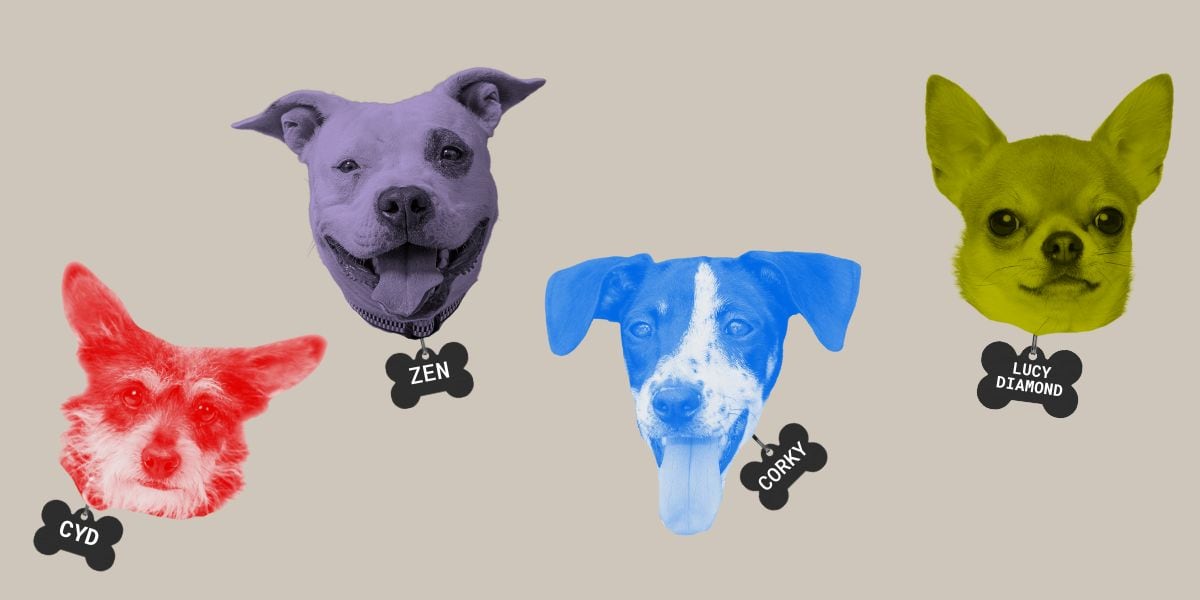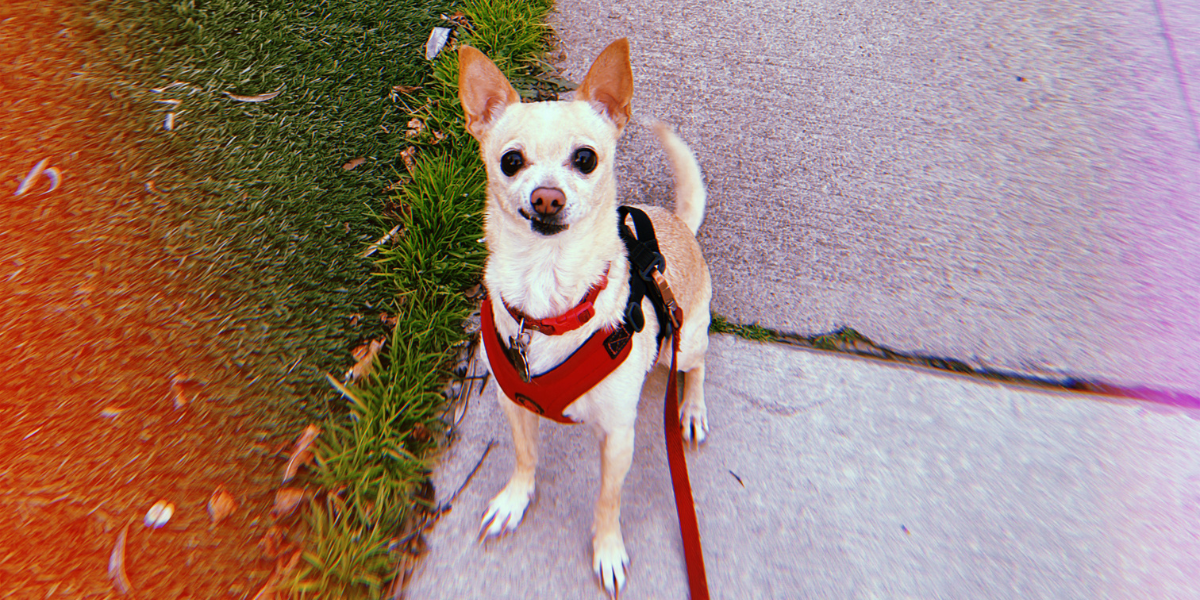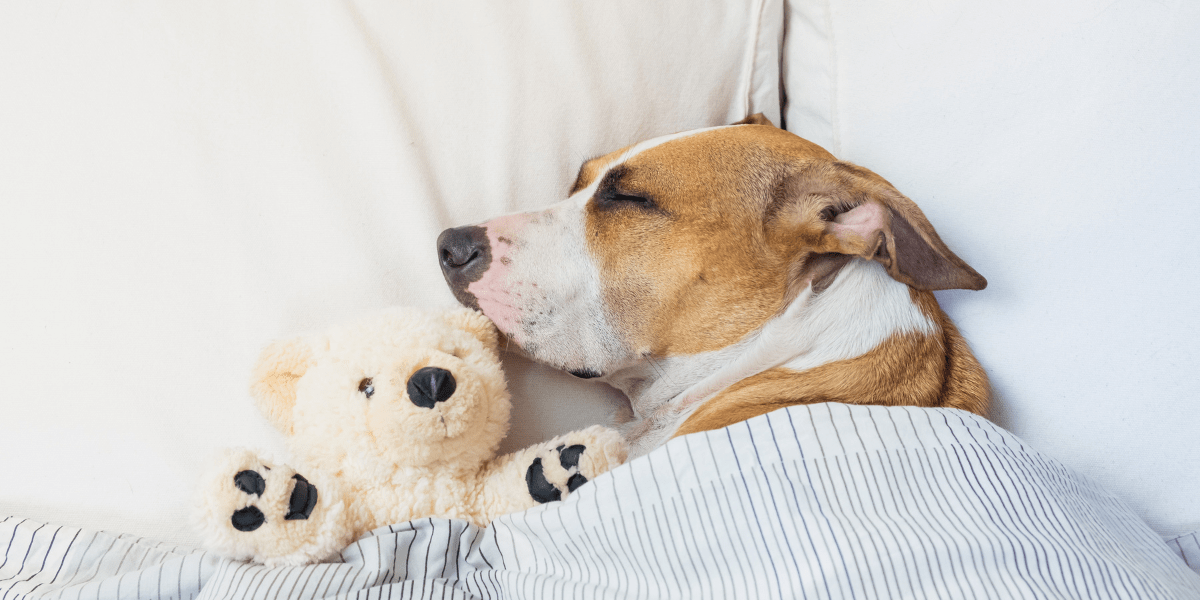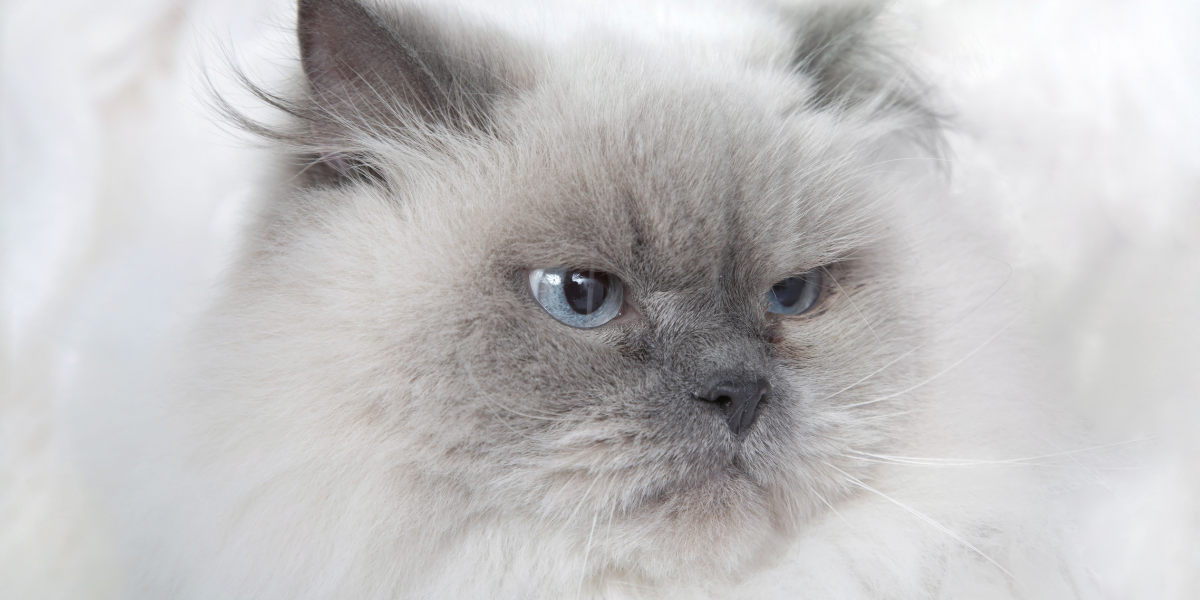I was 37 years old the first time a person suggested I should be gentle with myself — and it wasn’t even really a person; it was the disembodied voice of Andy Puddicombe, the guy inside the Headspace meditation app, which my therapist had practically downloaded onto my phone for me. “I know how to breathe,” I’d grumbled at her, after spending an hour detailing the panic attacks I was having multiple times a day, and how I was getting through them with my tried and true method of barking at myself to breathe. She shrugged. I scowled.
And so I was furious the first time I sat down with that app. I had actual work to do. So much actual work to do. My regular work, plus all the work that was piling up around me because I couldn’t make it through a single day’s to-do list because of my anxiety. The panic attacks were cutting into my productivity because it took time to actually have one and then extra time to stop being woozy and shaky afterward (though, at that point, I was having them so regularly I never quite fully recovered from the wooziness and shakiness before another one kicked in). And then there was the inability to focus because I was in a perpetual cycle of waiting to have medical tests and then waiting for the results of those medical tests and then waiting for more tests and then more results. Biopsies, ultrasounds, MRIs, bloodwork: Every day I was expecting some kind of call from some kind of doctor.
The point is, I didn’t have time to sit still and breathe. I could breathe while I was pacing around the living room Googling my symptoms on my phone. Kind of. I could kind of breathe. Sometimes. I’d only completely passed out once. Recently.
Meditation, as described by the adorable cartoon in the app, was so easy. All you had to do was close your eyes and focus only on your breath and then open your eyes three minutes later and — boom! — you’re a yogi.
But I couldn’t do it.
I could focus on my breath for an inhale or an exhale, but then I’d remember I hadn’t emailed back that freelancer or given edits to that staff writer and I was running out of time to get that recap written. Inhale. Like, yes, I was bleeding constantly and my uterus was “Hmm, bigger than I’d expect it to be for someone your age” my doctor had said. What did that “Hmm” mean? Was it like a curious hmm or was it like a cancer hmm? Was it—fuck. Exhale. Inha—Had I forgotten to get milk at the grocery store? Had I forgotten eggs too? Had I even eaten breakfa—goddammit. Exhale. Why was my nose whistling like that? Was I getting sick? Had the lump in my breast weakened my immune system? Argh! Inhale! Jesus, Heather, pay attention. It’s three fucking minutes. Can’t you do anything right right now? Christ. Exhale. Why is it so hot in here? I wonder what running the air conditioner this month is going to do to the power bill. Did I pay Verizon? I did, right? I’m sure I got a confirmation em—fuuuuck. Fuck. Fuck. Inhale! Exhale! Inhale!
“It’s natural for your mind to wander off,” Headspace Andy said in my ear, “When you notice that it has, gently return to your breath.”
Gently? Gently?! Why would I be gentle with myself when I was very clearly doing this thing — like so many other things in my life — wrong? No, I didn’t need gentleness. I needed more self-discipline, more conviction, more toughness. I needed to get my fucking shit together.
Headspace Andy said meditation wasn’t like whack-a-mole, that I didn’t need to frantically club my rogue thoughts over their head. He said meditation wasn’t like stabbing balloons with a needle or a knife. He said meditation wasn’t like lassoing a wild horse, or pinning down an angry monkey. All I had to do was just keep showing up, breathe, notice when my mind frolicked off, gently pull it back and focus on my breath, notice when it wandered off again, gently pull it back and focus on my breath. Just keep breathing. Just keep noticing. Gently.
I learned to sit still three minutes at a time, five minutes at a time, ten minutes, fifteen, twenty. Within a year, I could sit still for an entire hour if I wanted to.
The first time my mind wandered off and I chuckled and thought, “Come back here, Hoagie” my eyes popped open and bugged out of my head like a cartoon character. I could never, not once, remember ever thinking anything so kindly to myself, especially about failure.
And there’s the rub. It’s not failure for your mind to wander during meditation. It’s just part of meditating because it’s just part of being human because it’s just part of the way our brains have evolved. But when I’m meditating I’m meant to be focusing on my breath; and if my mind is wandering, I’m not focusing on my breath; and that is failure. Sure, I don’t have panic attacks very much anymore, and when I do, my recovery is swifter than it ever has been — but they’re still a part of my life. And yes, I’m now aware the absolute second my chest tightens and my muscles tense and my breathing shallows because of something I’m thinking or doing — but I don’t always nip my behavior or thought processes in the bud, even though I know that would have an immediate positive effect on my physical and mental well-being. And fine, I am now able to set boundaries and say no and communicate to other people how their behavior is affecting me because my mind is warmly acquainted with a default sense of calmness, so every decision doesn’t feel like fight-or-flight — but I still say yes too much and struggle under a pile of obligations I resent and write notes in my journal about “Stop trying to squeeze juice from a rock!!!!”
I worry. Worrying makes me worry more. I spiral. I fall asleep when I’m meditating. I can’t even focus on ten full breaths, sometimes, in an entire 45-minute sitting. My mind wanders into the dark woods and leaps off a cliff. I fail.
When I hung up the phone with the vet a few weeks ago, I looked over to where my cat Dobby was perched on the back of his armchair, staring at me with giant green eyes and enormous bat ears, and said, “Buddy, great news! It’s just anxiety.” He blinked. I nodded. “Well, ‘just’ anxiety.”
Dobby’d been losing weight, and fast. The vet did a physical exam and a fecal test and a urinalysis and couldn’t see anything wrong. But it also could be: thyroid, liver, intestines, stomach, kidneys. He shaved Dobby’s neck and drew a bunch of blood and sent it off to test for every possible thing. I explained that Dobby had been pacing a lot more than usual, yelling a lot more than usual, that he’d been acting out at his brother and sister. “Stacy’s been traveling a bunch for work,” I told the vet. “I think it’s making Dobby extra nervous.”
Emphasis on extra. Dobby came into our lives like his brothers and sisters, ushered onto the slab of concrete behind our house by his mom, who we’d found in an alley and adopted, from afar. Her name was Bobbi and we couldn’t touch her; she’d been feral her whole life. But with a lot of patience, she learned to trust us. We gave her food and water. We built her a winter shelter. She’d follow us, at a distance, when she saw us out on the sidewalk. “Let’s go home, Bobbi!” we’d call, and she’d trot along 30 paces behind us. It was over a hundred degrees outside when she brought her babies to us that summer. They wouldn’t let us touch them either, but we put out canned kitten food and so much water and named them from behind the screen door where we hid to watch them eat. Socks, Beth March, Frodo, Bobbi Jr., and Dobby.
Dobby was Dobby because of his eyes and ears, the physical resemblance to Harry Potter’s most beloved House Elf, but also because he clearly wanted to be so brave and was just absolutely terrified.
After I got certified by the ASPCA to trap them and had them spayed and neutered and treated for all their street cat parasites, we brought the Bobbis inside and started the long, slow process of trying to socialize them. Dobby was always two steps behind his siblings. We sat on the floor in their room, facing away from them, not talking. Everyone ate, but Dobby. We sat in the room, on the floor, not talking, with our hand on their bowl. Everyone ate, but Dobby. We put Gerber No. 2 chicken baby food on our fingers and held them out at a distance. Everyone licked it up, but Dobby. We stroked their backs with our fingertips, like a breeze, while they gobbled their meals. Everyone ate, but Dobby. We picked them up and moved them around their food bowl. We picked them up from a kneeling position. We picked them up from a standing position. Sometimes, when his brothers or sisters would be courageous enough to come over to get a pet, he’d run at them to try to stop them, screaming in terror.
Dobby walked in circles and circles and circles, pacing the days and nights away, refusing to get closer to us than he absolutely had to.
His socialization got fast-tracked when he and his brother and sisters were diagnosed with Feline Panleukopenia Virus and we had to rush them to the emergency animal hospital and leave them for intensive care. FPV is almost always fatal to kittens. He didn’t know that, but he knew something. As we waited for intake at the hospital, Stacy opened his carrying case and stuck her hand inside. He didn’t cower or hiss or slap her away. For the first time in his life, he came to her of his own volition. He pressed his head into the palm of her hand and stayed there.
The hospital let us bring the Bobbis home earlier than anticipated because Dobby wouldn’t eat. He’d even escaped at one point and been found in a drawer. “Sometimes cats live when they have someone to live for,” the doctor told us.
Dobby still wouldn’t eat when we got him home — until I picked him up and pressed him against my chest, so tight I could feel my heart beating through him, and held out a palm full of food. He wolfed it down. I crunched up pills and put them in his food. I pinned him down and forced syringes of medicines down his throat. He sat in my lap on purpose. He bopped me on my head with his head. He rolled over and showed me his belly. He lived, they all lived.
He kept pacing around in circles.
Perfectionism is the reason I’m so hard on myself about everything, including meditation. It’s textbook: low self-esteem caused, in large part, by childhood abuse that was extinguished when I accomplished something publicly noteworthy. My successes stopped the bad things happening to me and resulted in excessive praise.
“Am I always going to be this stupid kid?” I asked my therapist not too long ago, when I’d dug up another toxic cycle I was perpetuating in my daily life because of my perfectionism.
She said, “You’re a very successful 40-year-old woman. But yes, in some ways, you’ll always be this kid.”
Dobby’s anxiety routine goes like this: I wake up early and feed the other cats; then, I bring Dobby downstairs and give him a food bowl of his own. He starts to eat and the radiator clangs and he runs away. “Come back, sweet boy,” I coo, and he does. He eats. A garbage truck drives by and he runs away. “It’s okay, my angel,” I say. “Come back.” And he does. The house makes a settling sound, our upstairs neighbor drops her phone, rain slaps against the window, I shift and the floor creaks. He runs away. “Hey, baby bear,” I say. “It’s going to be okay.” He comes back. If it’s thundering or the street sweeper is out or he just can’t relax, I put my hand tenderly on his back; he wraps his tail around my wrist; he eats.
This is how we do lunch. It’s how we do dinner. Twice a day, I put the other cats away and brush him and scritch his chin and he curls up in my lap. He kisses me on one cheek. He kisses me on the other. He purrs as loud as a lion, trills with delight when I rub his ears between my thumb and forefinger. He presses his forehead against my forehead.
I have never begrudged Dobby’s anxiety or the extra time and care it requires. He’s almost four years old now. He’ll always be a kitten, too, just a little, just like me.
One of the wildest things about meditation is it rewires your brain, literally. Neuroscientists now understand that meditation doesn’t just help people out psychologically — it increases cortical thickness (which helps you regulate emotions, plan, and problem solve); it decreases the size of the amygdala (which is where your fight-or-flight operations exist); it shrinks the connections between the amygdala and the prefrontal cortex (which decreases reactivity); and so much more. It’s called neuroplasticity; it’s the brain’s neurons rearranging themselves.
And get this: The parts of your brain that regulate resilience are enhanced by a very specific part of meditation. Not the part where you settle into the space around you. Not the part where you scan down your body to build up a picture of your mood. Not even the part where you focus for twenty minutes on your breath. No, the neurons that fire together and therefore wire together to make you tougher and stronger and more able to bounce back from setbacks are the neurons you stimulate when you gently return to your breath. Your mind actually has to wander off for them to learn to work.
I meditate in the mornings. I used to do it first thing, but now I do it after I tend to Dobby’s anxiety.
Lately I’ve been doing a visualization meditation. I imagine a kind of liquid sun filling up my body, from the tips of each of my individual toes, up into my feet, my ankles, my shins, my thighs, my hips, my stomach and chest and shoulders and down into my arms and fingertips, up up up into my neck and face to the tip-top of my head. I rest my mind in the warmth, the space, the light.
When my mind wanders, like it always does, I hold out my hand like I do for Dobby. Come back, baby bear. It’s okay.
A few days ago, when my mind was basking in that calm space my body made for it, I had a vision of myself as a child. A very small child. Maybe three. Someone was holding me and I was laughing and I was free. I felt the joy of my child self in my adult body. My chest filled up with expanding, undiluted, unfiltered happiness. I was breathing so deeply and fully my muscles felt more relaxed than I could ever remember them being. In my living room in my house in New York City, my adult self started to cry, but in what was very clearly my great-grandmother’s backyard in Conyers, Georgia, my child self kept smiling, safe and content in the arms of the grown-up holding her close.
My vision zoomed out. I heard myself laugh. I felt it rumble in my chest like spring.
The person holding me was me.







